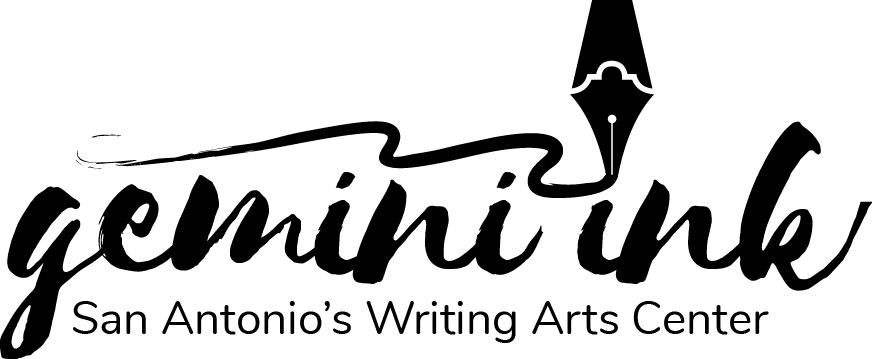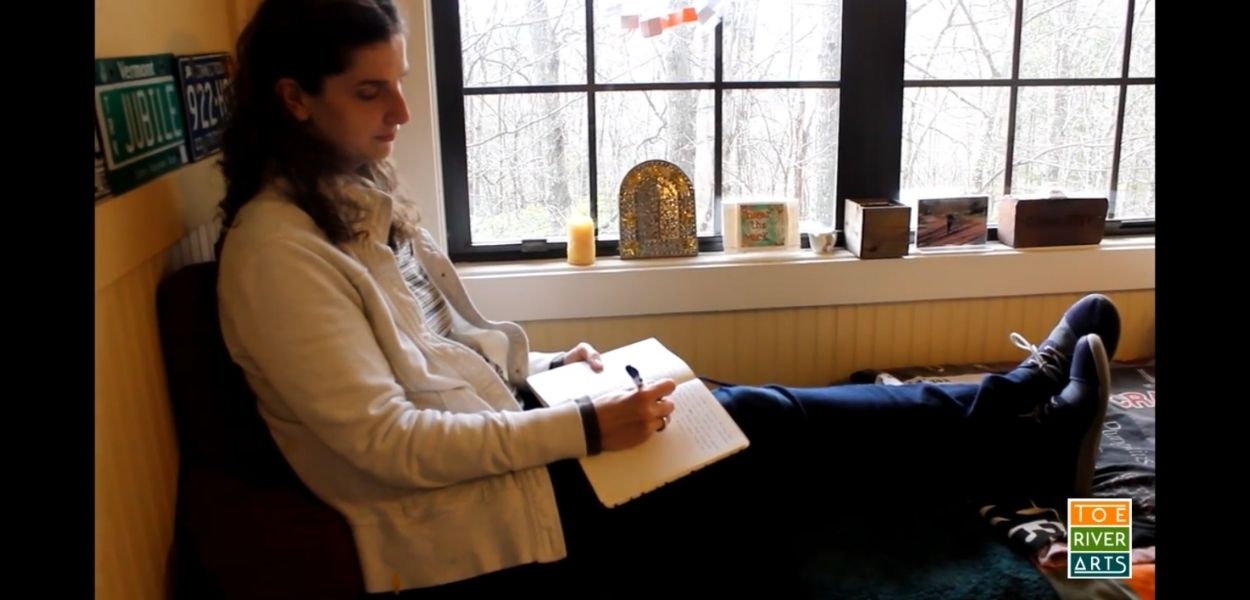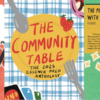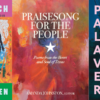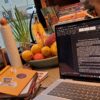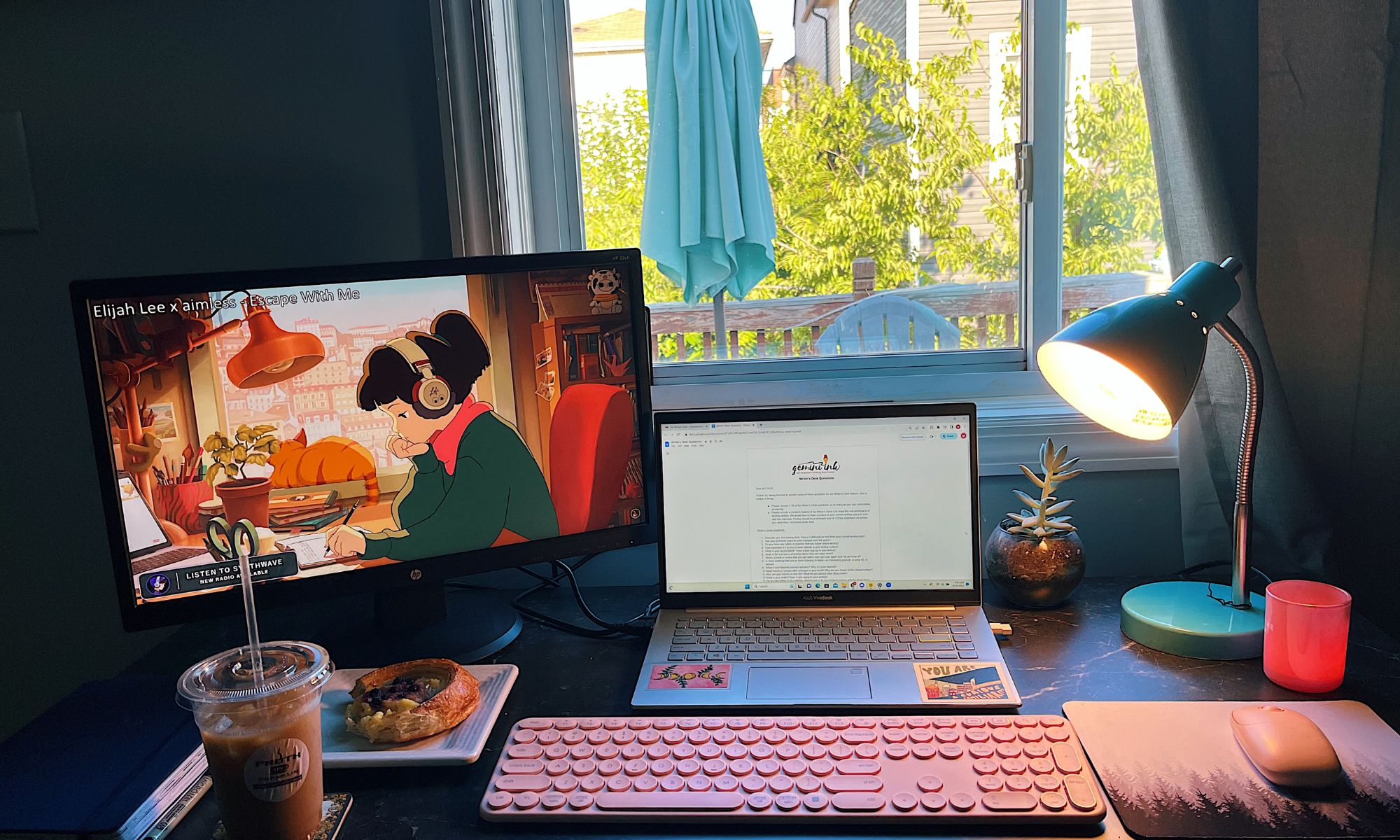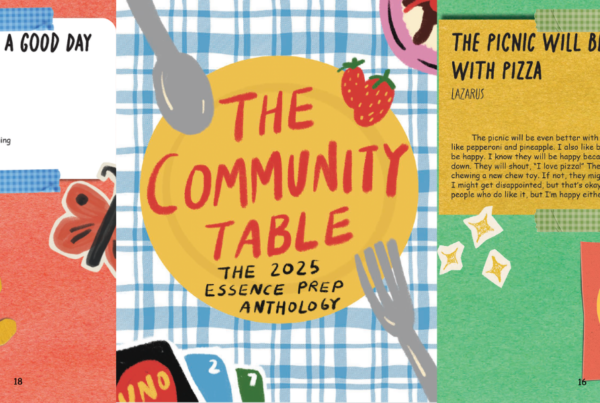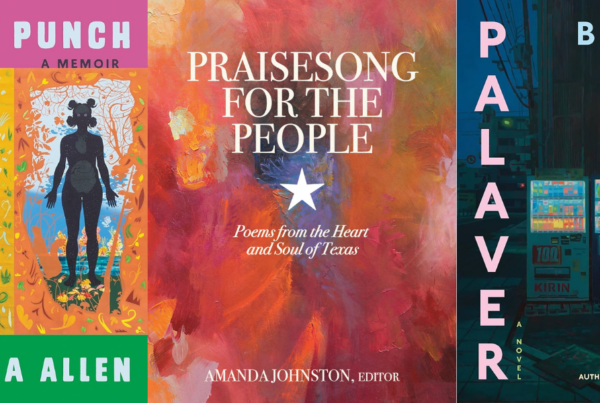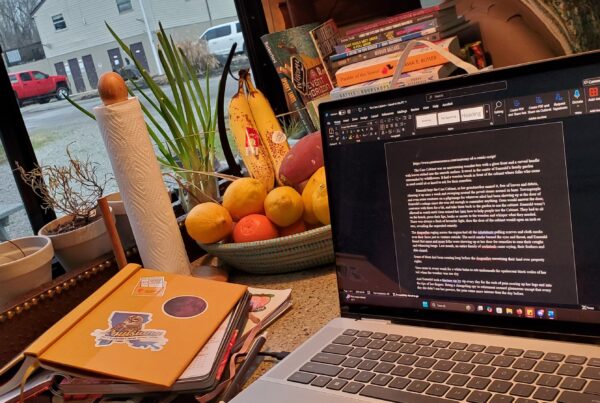The Writer’s Desk features the desks and writing practices of Gemini Ink faculty, visiting authors, teaching artists, volunteers, students, interns, staff, partners and more. Receive new posts in your inbox by subscribing to our newsletter at bit.ly/geminiinknewsletter.
Join Katey Schultz on Tuesdays, Oct 7, 14 & 21, 2025, 6-8pm CST, via Zoom, for her workshop: Deep Revision. This course is for intermediate or advanced writers who have, at minimum, worked through a partial or complete first draft of a full manuscript, or who have published books and are ready to improve their next manuscript by learning how to become their own best editors.
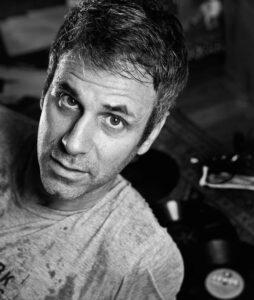 I think we hear and incorporate the “best” advice when we need it, therefore, what’s “best” changes from project to project. In general, however, I think it can be really helpful to remember that writing is nothing other than decision-making. Steve Almond said that and others have said it, too. For my part, I find this advice useful because if I’m stuck on the page, all I have to do is reflect about the decisions I made to get to that point, and see if I can choose something different. I also appreciate the mindset that writing is an act of discovery. All we’re doing when we’re looking over our pages is searching for the clues we left ourselves about what it is we’re actually trying to say. Verlyn Klinkenborg says a writer’s job is to search for “the sentence hidden inside the one you’re making” and I have built my career as a mentor to authors by following that ethos. It’s possible to teach others how to search and discover, and there’s nothing more empowering than bringing a draft back to life!
I think we hear and incorporate the “best” advice when we need it, therefore, what’s “best” changes from project to project. In general, however, I think it can be really helpful to remember that writing is nothing other than decision-making. Steve Almond said that and others have said it, too. For my part, I find this advice useful because if I’m stuck on the page, all I have to do is reflect about the decisions I made to get to that point, and see if I can choose something different. I also appreciate the mindset that writing is an act of discovery. All we’re doing when we’re looking over our pages is searching for the clues we left ourselves about what it is we’re actually trying to say. Verlyn Klinkenborg says a writer’s job is to search for “the sentence hidden inside the one you’re making” and I have built my career as a mentor to authors by following that ethos. It’s possible to teach others how to search and discover, and there’s nothing more empowering than bringing a draft back to life!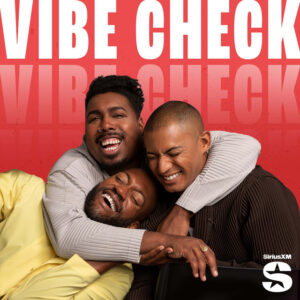 I’m a huge fan of The Paris Review podcast, as well as the Vibe Check podcast. Pairing the unique soundscape created by the Paris Review’s podcast team with the powerful humor and cultural commentary of Vibe Check is just the medicine I need to stay in touch with my creative, happy self. As far as music goes, Pearl Jam is my go-to. You can’t beat a band that fights for women’s rights and voter’s rights, supports youth skateboarding programs, brings awareness to homelessness and housing inequities, and uplifts other musicians around the world. To say nothing of their incredible sound!
I’m a huge fan of The Paris Review podcast, as well as the Vibe Check podcast. Pairing the unique soundscape created by the Paris Review’s podcast team with the powerful humor and cultural commentary of Vibe Check is just the medicine I need to stay in touch with my creative, happy self. As far as music goes, Pearl Jam is my go-to. You can’t beat a band that fights for women’s rights and voter’s rights, supports youth skateboarding programs, brings awareness to homelessness and housing inequities, and uplifts other musicians around the world. To say nothing of their incredible sound!The lone-wolf writer at the desk, whittling away the hours and slaving at the desk is one of the most damaging and incomplete myths of our times.
- This has created a culture of self-censorship in publishing, one in which even progressive authors are being silenced by public outcry on the left.
- While rooted in good intentions to promote diversity and sensitivity, the movement has evolved into a moral panic that risks stifling creativity and narrowing the bounds of free expression.”
6. What is your current project?
I’m working on a novel set in West Virginia during the post-9/11, pre-covid era. It follows two protagonists through a unique and unexpected teenage friendship as each faces betrayals from their own family members. All of this is set against the backdrop of mountaintop removal (strip mining), which is another level of betrayal. Ultimately, the novel explores the question, How do you forgive the unforgivable?
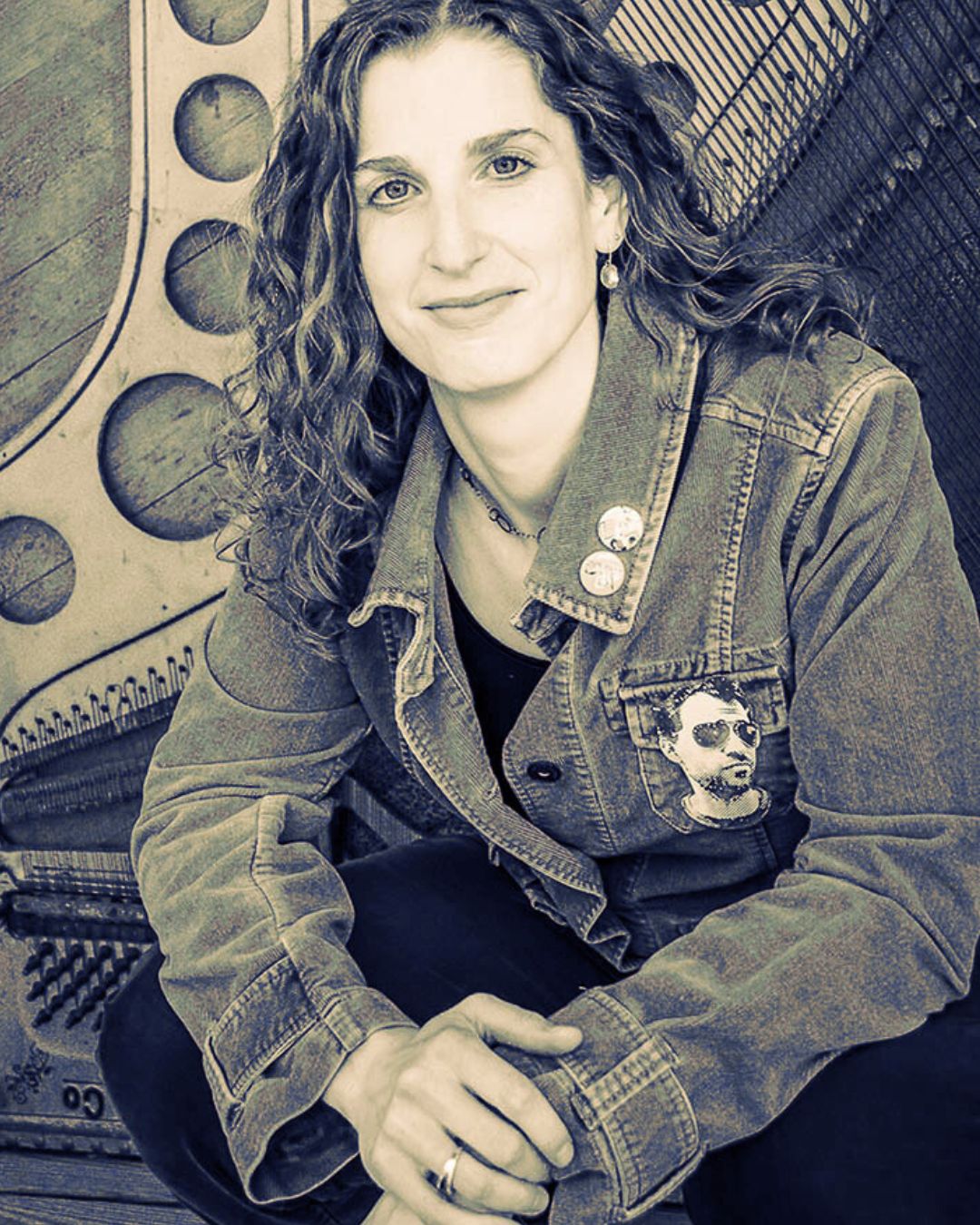
Katey Schultz is the author of Flashes of War, which the Daily Beast praised as an “ambitious and fearless” collection, and Still Come Home, a novel, both published by Loyola University Maryland. Honors for her work include North Carolina’s Sir Walter Raleigh Award for Fiction, the Linda Flowers Literary Award, Doris Betts Fiction Prize, Foreword INDIES Book of the Year award, gold and silver medals from the Military Writers Society of America, the Chicago Writers Association Book of the Year award, five Pushcart nominations, a nomination to Best American Short Stories, National Indies Excellence recognition, and writing fellowships in eight states. She has taught all over the country—at Interlochen College of Creative Arts, Fishtrap, 49 Alaska Writing Center, StoryStudio Chicago, and her own organization Maximum Impact, among many others. She lives in Celo, North Carolina, and is the founder of Maximum Impact, a transformative mentoring service for creative writers that has been recognized by both CNBC and the What Works Network.
